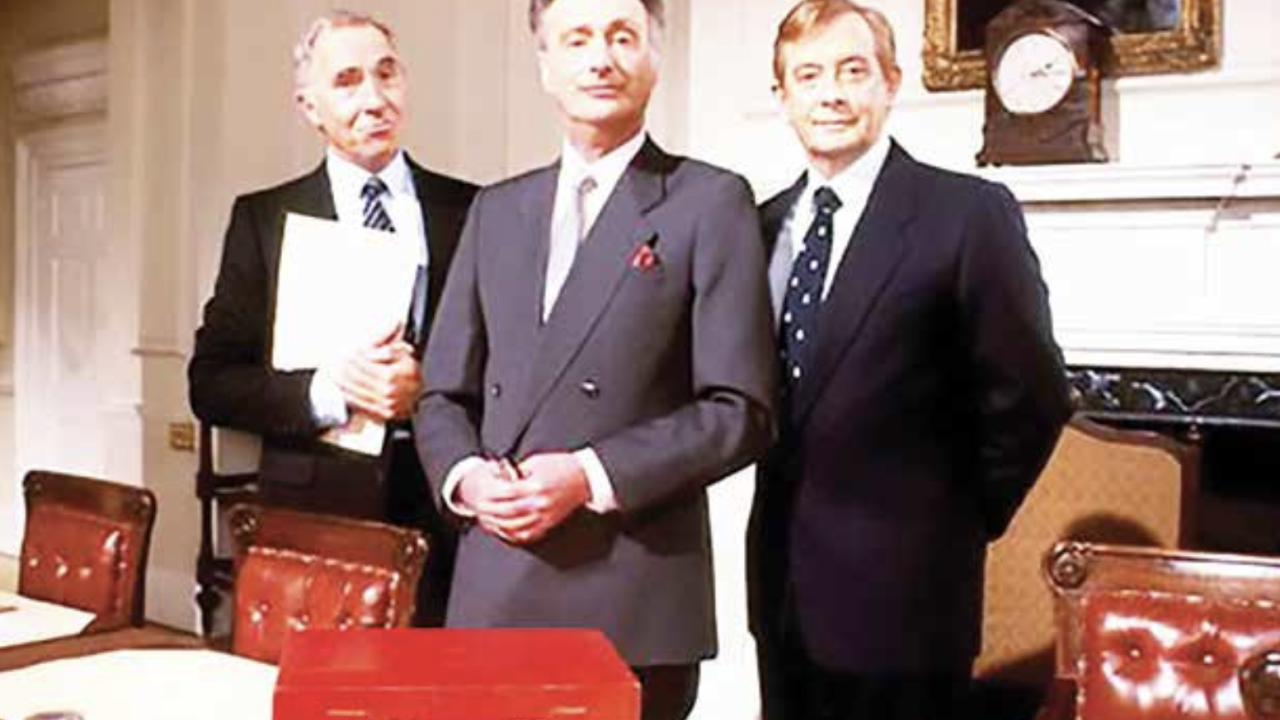Yes, Minister...how our bureaucrats wield power

Think it’s Jeremy Rockliff and his Ministers who are in charge of the direction of the state? Think again. It’s Tasmania’s 35,000-plus bureaucrats who are really calling the shots.
This ever-growing institution tells our politicians what they can and can’t do, interprets and reinterprets laws and regulations, and makes decisions about how to spend government (your) money.
The role of the bureaucracy in our Westminster democracy is meant to be to impartially implement the policies of the government of the day.
This is why under our system, for example, departmental secretaries are appointed by and answer directly to the Premier. This is designed to allow the Premier and government of the day to have a bureaucracy who are invested in delivering their program.
(Recently, I have noticed a new level of senior bureaucrats “Associate Secretaries” – between the “Secretary” and “Deputy Secretaries” – has appeared in departmental organisation charts. These no doubt highly-paid Associate Secretaries didn’t exist until a few years ago, and I have no idea what they actually do.)
Despite the appointment of their own Secretaries (if indeed a new Government or Premier has the gumption to do it) over time, Government control over the bureaucracy breaks down. So rather than government Ministers directing the bureaucracy of what they want done, the bureaucracy directs their Minister on what to do.
They do this using four techniques.
Firstly, flattery and “blowing smoke up the backside” of Ministers. Just tune into a parliamentary estimates hearing for a few minutes and you’ll see this in all its grotesque glory.
Second, they will at times aim to scare the living bejesus out of Ministers, by intimidation and directly stating (without any actual basis) that certain actions could be a “bad look”, “possibly” subject to investigation by the Integrity Commission, or “potentially” even illegal.
Of course, the first is none of the bureaucracy’s business, and the later two are rarely, if ever, actually true. But, you can see how a Minister might be easily intimidated by such claims.
The third technique is that the bureaucracy will simply push back on a Minister’s instructions in every way they can: obfuscation, go-slows, outright refusal. The aim is that eventually, a Minister will just give up.
And finally, having berated a Minister into submission, the bureaucracy will start sending up their own instructions in the form of “urgent” briefs to the Minister for approval, urging that the Minister agree with the action that’s being proposed, or some terrible fate will befall the state.
Indeed, a famous example of this technique actually starts on day one of a Minister’s tenure. Proposals rejected by previous Ministers are “tried on” again with a new Minister in the hope they’ll agree before realising why it’s a bad idea. Ever wonder why the so-called “reforms” to the fire levy keep popping up every three or four years?
Every 15 years or so in Tasmania, when there’s a new government elected with a clear plan and mandate, the grip of the bureaucracy is loosened. But the longer a government lasts, the weaker their mandate and political resolve becomes, and the stronger the bureaucracy gets.
With rare exemptions, this is the situation we have in Tasmania now – the bureaucratic tail wagging the government dog.
Famously, the bureaucracy are also meant to provide the government with “frank and fearless” advice.
Unfortunately, in practice this has increasingly come to mean that a Minister won’t do something unless he or she has bureaucratic “advice” telling them that they can. And, they certainly will not do something if they have bureaucratic advice advising them not to.
This reliance upon bureaucratic say-so has been fostered by the left-leaning media and technocratic institutions such as the Integrity Commission, who will mercilessly attack and criticise any politician who dares to make a decision unless supported by bureaucratic “advice.”
Take for example recent election campaigns in Tasmania where these bodies have heavily criticised politicians for daring to promise how they would spend taxpayer money, should they be elected.
Somehow, a politician being open, direct, and accountable is essentially corrupt, while a faceless, unelected bureaucrat making these decisions is perfectly okay. Even Sam Kekovich would struggle to make sense of it.
Over the years various attempts have been made to try and weaken the power of the unelected bureaucracy. The most significant of these was the appointment of “ministerial advisers” in the Minister’s offices, employed directly by the Premier’s office, and separate to the bureaucracy.
These advisers are meant to apply a common-sense and political filter to interactions with the bureaucracy. However, with many Ministerial advisers those days career bureaucrats on secondment, most have instead become ciphers of the public service.
Very early in my political career I was given some timeless advice: bureaucrats and ministerial advisers are paid “x” to advise, and politicians are paid “x+y” to decide.
This makes perfect sense. Sure, the faceless bureaucrat or ministerial adviser might be an expert in the field, but it is the politician who is elected and ultimately accountable to the people for decisions that are taken.
It all begs the question, what is the point of politicians and elections if they aren’t going to be the ones actually making the decisions?
- BRAD STANSFIELD is a partner at Font PR and at Font Publishing, owner of this newspaper. He was Premier Will Hodgman’s Chief of Staff from 2014-18.

Add new comment
Comments
Yes Minister was 40 years ago...
Pull the other one Brad. Yes Minister was 40 years ago, an era long gone. The relevant example in 2025 is the Utopia series - where it's those fronting as 'advisers', 'consultants' or ignorant shills from self-serving PR companies that pull various Minister's strings - while a legislated impartial public service attempts to maintain some semblance of public responsibility and informed experience to counter those self-deluded clowns.